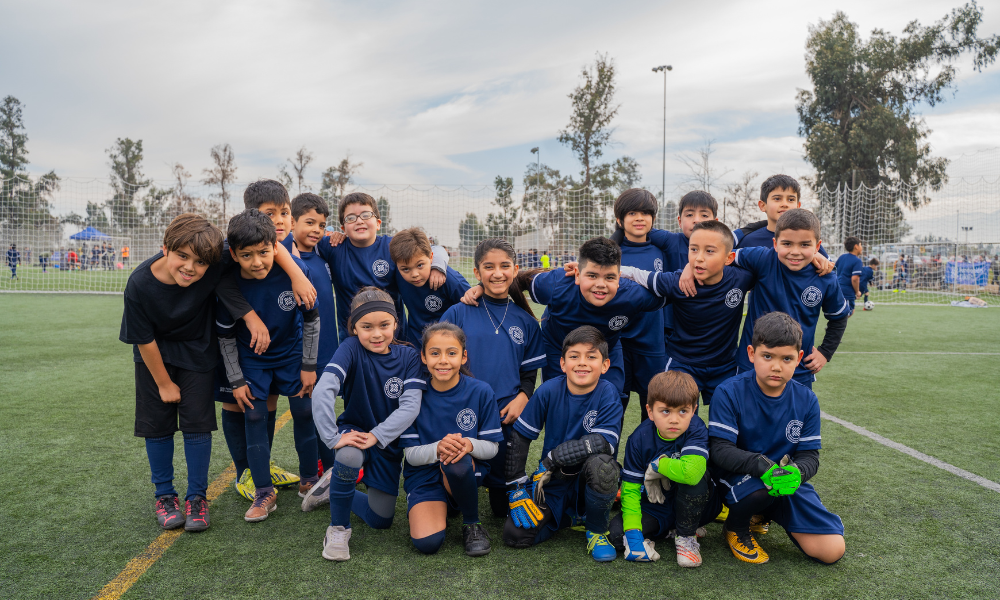“Nothing is impossible,” said Nicolás Massú, Chilean tennis player and gold medalist at the 2004 Athens Olympic Games, more than ten years ago, after winning a match in 2009 that allowed the Chilean team to stay in the World Group of the Davis Cup.
Throughout history, sports have provided us with thousands of testimonies of effort, overcoming challenges, and transcendence. There are numerous accounts of men and women from different countries and ages who achieved their dreams, broke records, and inspired millions of people worldwide. International examples include Jesse Owens, Serena Williams, Rafael Nadal, Pelé, Tegla Loroupe, and Simone Biles. Locally, there are also role models like Tiane Endler, Francisca Crovetto, or Santiago Ford, who stood out with their achievements in the Santiago 2023 Pan American Games.
The “trickle-down effect” concept suggests that elite or high-performance athletes effectively serve as a source of inspiration for people to engage in sports, generating individual benefits in people’s health and quality of life, as well as societal benefits as a whole.
Engaging in sports is important, there is no question about that. There is a consensus that society must promote physical activity for its multiple effects on community members’ well-being. However, sports go beyond physical health: they promote the development of skills and competencies such as discipline and responsibility, favor learning, instill values like respect, and foster ethics. Moreover, it is a great means for social cohesion, promoting inclusion and diversity. But can all this be achieved solely through sports?
“Evidence shows us that sports alone do not create protective components; promoting sports alone is not enough for a positive impact. However, sports constitute a tremendous platform for developing these components, and their benefits can be maximized and have long-term effects by accompanying sports practice with comprehensive interventions. These interventions should promote the development of skills and competencies in the individual engaging in sports and involve their family or close circle,” explains Macarena Cea, Director of Evaluation and Development at Fundación Luksic.
Different organizations in Chile understand this concept. For example, Fundación Kiri works to provide socio-emotional skills, which can prevent mental health problems, through cultural, scientific, and sports workshops, as well as recreational spaces such as championships or challenges in schools.
In the sports field, Kiri conducts workshops on skateboarding and tennis, through which, with the essential support of their own monitors, they promote collaborative work, a sense of belonging, determination, emotional regulation, delve into the development of students’ self-esteem, and promote the personal construction of a purpose.
“We believe that sports strengthen both the body and the mind. Our workshops promote social and emotional skills, such as self-esteem, a sense of purpose, and emotional regulation. We work on these skills from disciplines that resonate with the genuine interests of students. At Fundación Kiri, we want to build a world where mental health is a priority, and we focus on promoting well-being environments to achieve it,” says Florencia Álamos, Executive Director of Fundación Kiri.
At Fundación Luksic, they implement sports schools for hockey and soccer for children aged 7 to 14. In total, there are 14 soccer schools in 10 communes in the Metropolitan Region and one in the commune of Antofagasta, with the participation of 1,300 children and adolescents. Additionally, the Foundation has four field hockey schools for girls, three in communes in the Metropolitan Region and one in the commune of Calle Larga, in the Valparaíso Region, with the participation of more than 150 students.
These Sports Schools work on components aimed at providing comprehensive education: students have educational sessions on healthy eating, and talks and workshops on positive parenting are held for parents and/or caregivers to support their parenting role.
“At Fundación Luksic, we are convinced that through sports, we can support people in developing their talents and transforming their lives. That’s why we also focus on creating formative instances for both children and their guardians. We believe that by integrating these components with sports practice, we can support students in their development,” comments Rosario Donoso, Sports Director at Fundación Luksic.
Camila Caram was part of the Chilean Field Hockey team and former captain of the “Diablas” (Devils). Today, she is the Director of Inter-school Circuits at Fundación Kiri and co-founder of Fundación Impúlsate, an organization that works by implementing the hockey schools of Fundación Luksic. The hockey player explains that team sports promote the development of socio-emotional skills such as empathy, collaboration, or planning. These skills facilitate the learning of children and adolescents. Additionally, physical activity increases neuroplasticity, which is associated with improvements in brain processes related to learning.
“Throughout my life, sports have given me many values and skills that will serve me in seeking success in whatever I propose. And together with my sister, at Fundación Impúlsate, we seek to somehow give back to other children what sports gave us. That’s why we believe that sports are a fundamental medium for these learnings because on the field, during training, unique experiences are lived, and one internalizes these learnings in a very easy way,” says Caram.

